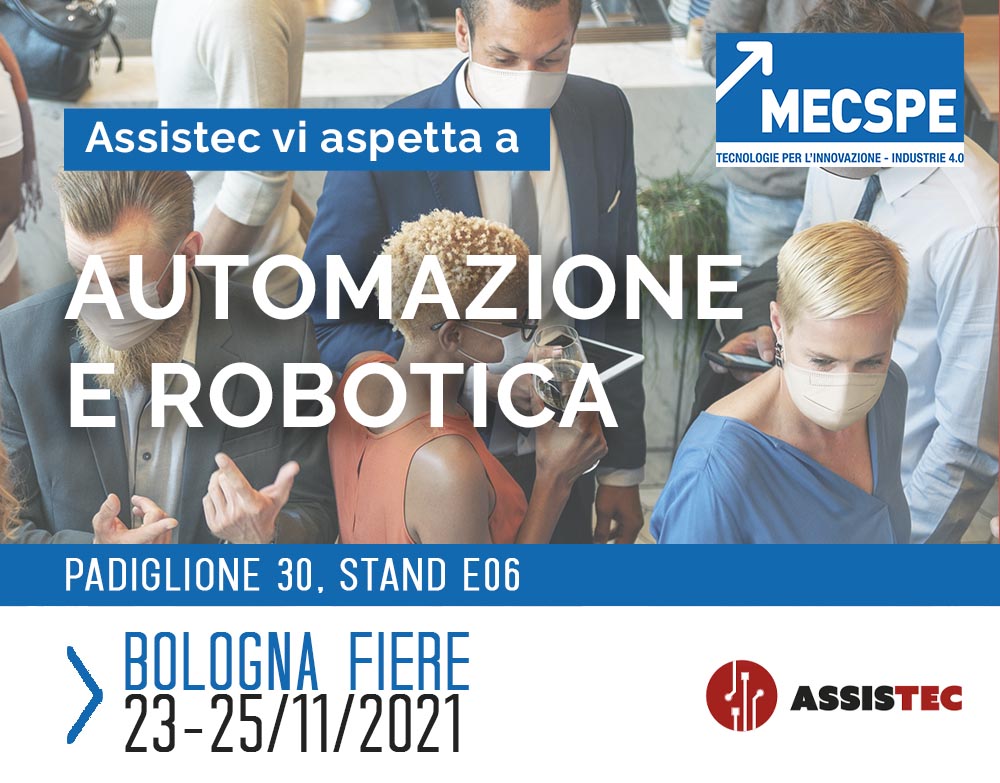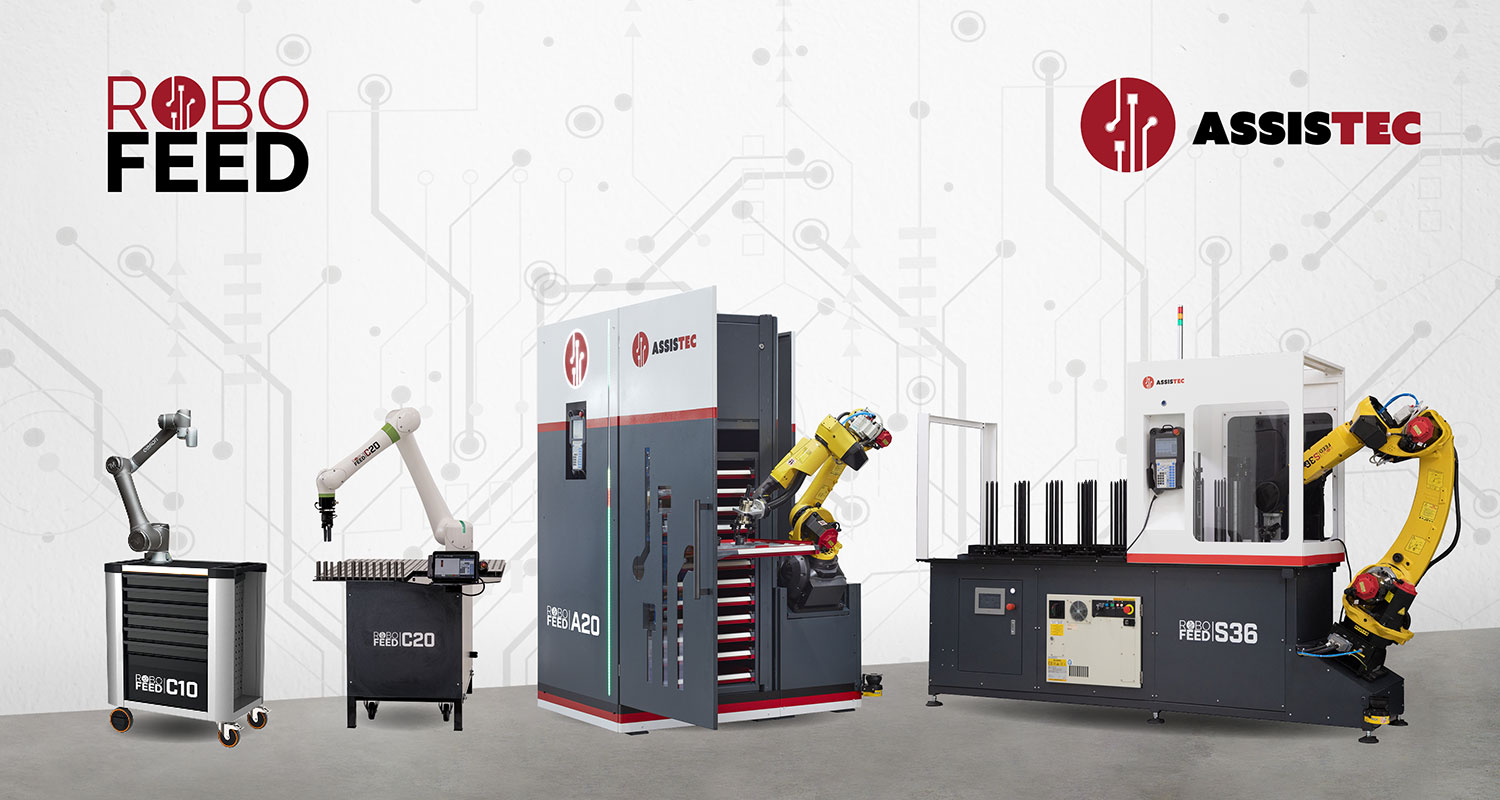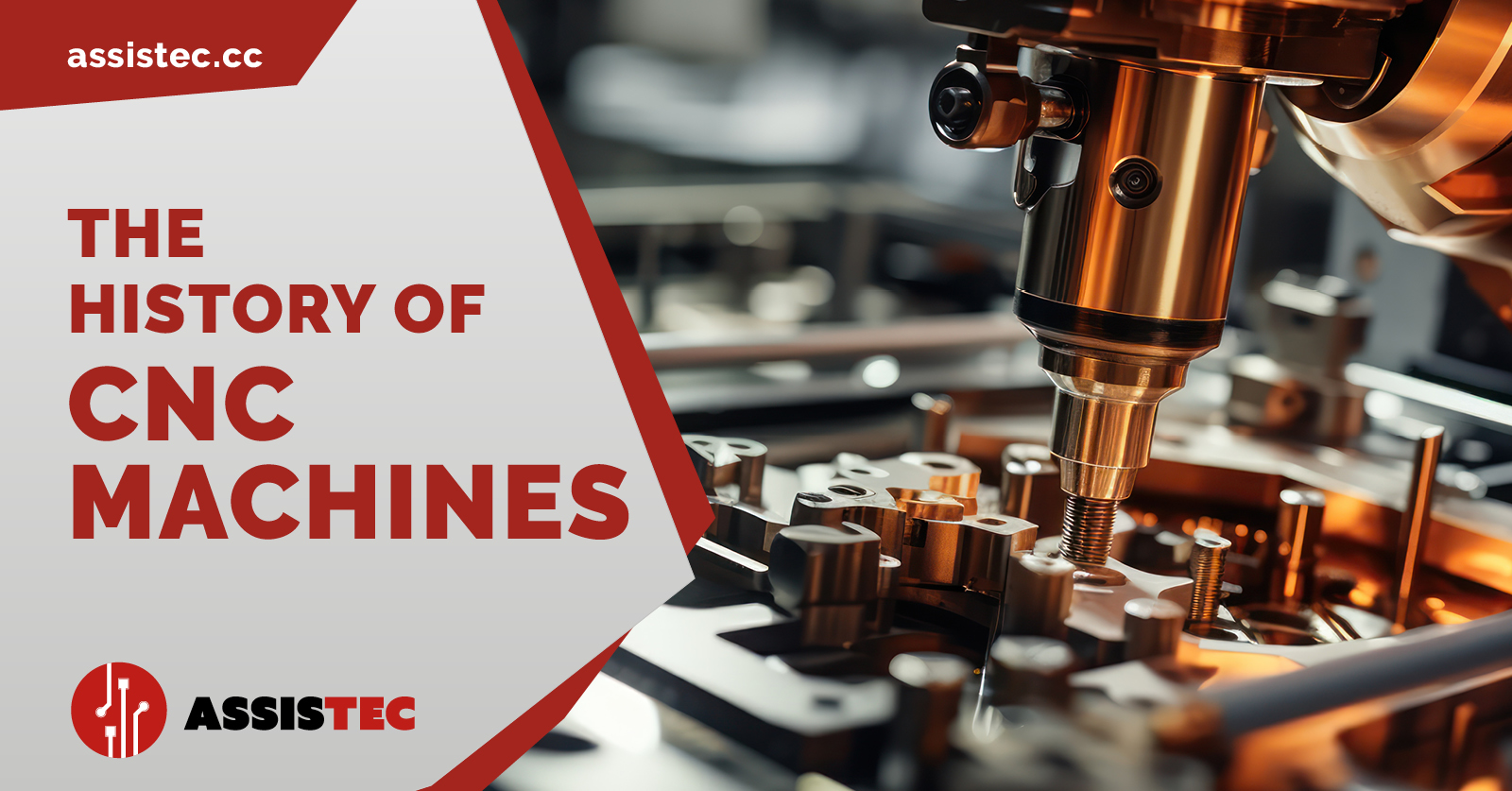Assistec at MECSPE 2021, the leading trade fair for manufacturing industry


Appointment at Bologna Fiere from 23 to 25 November Hall 30, Stand E06
The most important Italian fair dedicated to technological innovations for the manufacturing industry is finally back! From 23 to 25 November, at Bologna Fiera, will be held the 19th edition of MECSPE, a unique event full of meetings and previews from the world of industry 4.0 and smart factories. The goal is to offer a greater range of exhibition solutions to the state-of-the-art manufacturing sector. This objective was also highlighted by the decision to move the festival from Parma to the Emilian capital, Bologna. In this way, visitors and exhibitors will benefit from more efficient connections and larger infrastructures.
With almost 2,000 companies present, 375,000 square meters of exhibition space and 18 pavilions, the new edition of MECSPE promises to offer a significant product enrichment and many new features, including special initiatives and conferences. The formula of the event will remain unchanged, continuing to represent all the sectors that have always distinguished it: from machine tools to digital factory, automation and robotics.
Mark the date and participate!
Assistec will also participate in MECSPE 2021, to share visions and discover new market trends. We are convinced that this is an event of great importance, which you can not miss. In Bologna, we will be together with many other leading companies in a showcase that represents for everyone an updated overview of the industrial system of the future. During the event we will present to visitors our automation solutions, such as robotic islands, Robofeed and system integrator interventions on the CNC.
At our headquarters in Reggio Emilia, we provide electronic and mechanical technical support for machine tools for over 20 years, in order to reduce anomalies and eliminate downtime.
Do you want to participate in MECSPE 2021? Plan your visit by following the directions on the official website of the fair or contact us for more information. We are waiting for you in Bologna!
Find out
Recent Posts

-
Assistec is your partner with over 25 years of experience in full service for CNC machine tools, offering both electronic and mechanical technical support. Our main objective is to minimise machine downtime, ensuring a rapid return to production and an efficient return on investment.
CNC electronic support services: rapid diagnosis and effective solutions
Our electronic service on CNC machine tools is characterised by a comprehensive service that begins with a thorough prior telephone diagnosis by our service department. This initial phase is crucial to quickly understand the nature of the problem. Thanks to our well-stocked electronic spare parts warehouse, we are often able to resolve the fault already during the first technical intervention.
-
MECSPE 2025 is one of Europe's leading trade fairs dedicated to innovation in the manufacturing industry. It is a crucial event for companies that want to stay up-to-date with the latest technologies, solutions and trends in the industry.
Over the years, MECSPE has helped transform artisanal processes into large-scale precision industrial systems. Today, the show serves as a meeting point for machinery manufacturers, technology suppliers, system integrators, and end users, creating an ideal environment for networking and knowledge exchange.
MECSPE is essential to discover how to automate and digitise production processes, improve efficiency, reduce costs and increase competitiveness. In this context, Assistec has decided to play a leading role once again, confirming its presence also in the 2025 edition.
-
Numerically controlled (CNC) machines represent one of the most important technological innovations of the modern industrial era.
Their ability to automate and standardise complex operations has changed the face of manufacturing, transforming craft processes into large-scale industrial precision systems.
The spread of CNC machines has made it possible to reduce human error, increase productivity and, above all, guarantee repeatability of machining operations that would otherwise have been impossible. This has proved particularly crucial in sectors where precision, efficiency and speed are vital, such as aerospace, automotive, precision engineering and medical device manufacturing.
One of the main reasons for the success of CNC machines is their ability to perform tasks with extreme precision that previously required the manual intervention of skilled workers.
With CNCs, on the other hand, once the machining has been programmed, the machine can perform an infinite sequence of operations without loss of precision, solving problems of variability and improving the quality of the finished product.
At this point, the question might arise: when did CNC machines originate and how did they reach this level of sophistication?





